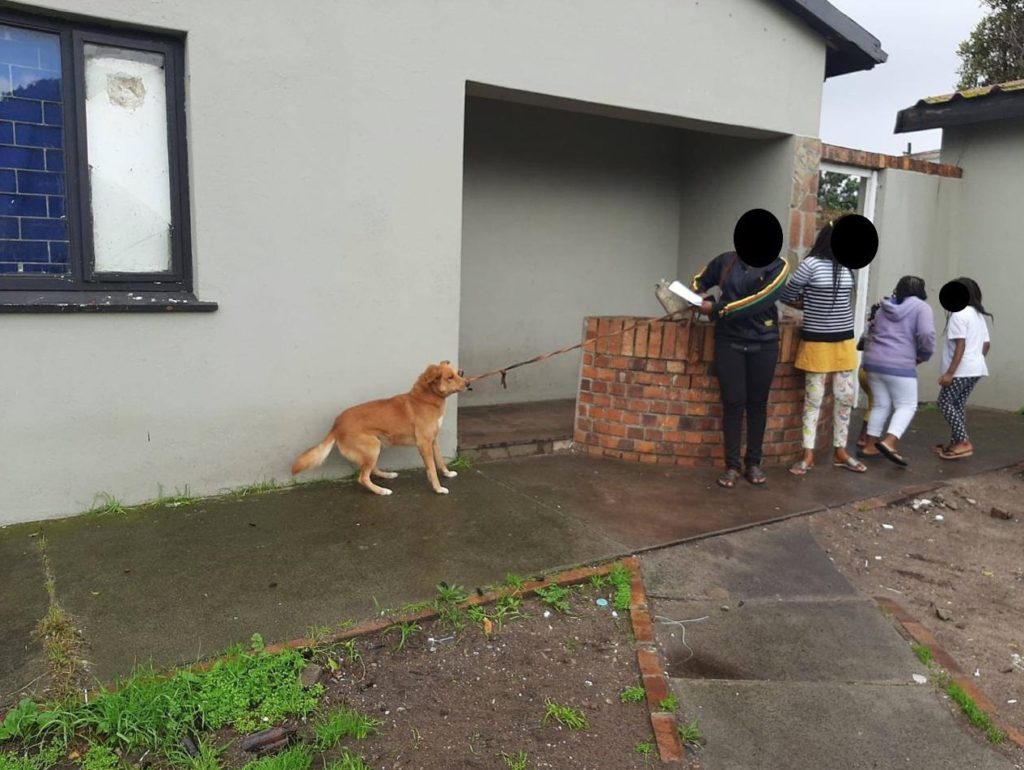The Cape of Good Hope SPCA has condemned those who chain their dogs up, saying that a life in chains “is no life at all”.
“Without the freedom to roam around, play and engage in their natural behaviours, dogs kept on chains or tethers can become bored, lonely, depressed and oftentimes aggressive. Chains can cause back and neck injuries when animals become entangled and animals can hang themselves if a chain catches on something high up,” they said on their Facebook page. “Chained animals are vulnerable to exposure from the elements and cannot flee in the event of a natural disaster or fire.”

“It’s hard to believe that even when a family has been informed of the suffering caused by chaining that they continue to do so. After several visits to a property recently, Inspector Elani Graham finally had to accept that her efforts to educate were simply falling on deaf ears. This dog was confiscated and is now safely in our care,” the SPCA said. “Charges in respect of contraventions of the Animals Protection Act No. 71 of 1962 are being pursued.”
Regulations by the National Society for the Prevention of Cruelty to Animals (NSPCA) stipulate that animals must be free of discomfort, pain, fear, hunger, thirst and injury. Animals must also be allowed to express normal behaviour, and for this, they require sufficient space, proper facilities and company of the animal’s own kind.
NSPCA regulations, which are also in line with the Animal Protection Act No 71 of 1962 says that it is a contravention of the law if anyone “confines, chains, tethers or secures any animal unnecessarily or under such conditions or in such a manner or position to cause that animal unnecessary suffering or in any place which affords inadequate space, ventilation, light, protection or shelter from heat, cold or weather”.
A person found guilty of neglecting or abusing their animal may face a fine of up to R60 000, or three years in prison.
Please report animals on chains to 021 700 4158/9 or 083 326 1604
Picture: Supplied/Cape of Good Hope SPCA

